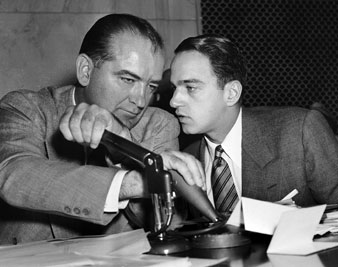Some Thoughts About “The Pursuit of Happiness”
What did the Declaration of Independence mean? And why does it matter?
Strikingly, unlike consumption (which is essentially an individual activity), most of the sources of happiness inherently require not just the cooperation of other specific individuals but supportive social conditions — for instance, an economy that provides employment opportunities or communities that provide the opportunity to form lasting friendships. In other words, “the pursuit of happiness” requires not just being allowed to “do your own thing”; it requires society to provide the conditions that make happiness possible.
If society has a duty to provide such conditions, that means that all of us collectively have that duty. (After all, collectively we are society.) So the inalienable right to the pursuit of happiness necessarily means the unavoidable duty (where required) to support the conditions under which others are able to pursue happiness. The flip side of the right to pursue happiness is a responsibility for maintaining a certain kind of community — thus, a degree of civil duty.
What does all this have to do with environmental law? It means that libertarian visions based purely on individual autonomy are missing the meaning of “life, liberty, and the pursuit of happiness.” Perhaps most obviously, it also means that cost-benefit analysis is the wrong way to think about social policy, because money is a poor measure of well-being. Individually and as a society, we need to be more concerned about the quality of our lives and our communities, and less about the quantity of our cash.
Reader Comments
4 Replies to “Some Thoughts About “The Pursuit of Happiness””
Comments are closed.





Thanks for taking the time to post this today Dan… very apt, and your concluding paragraph is right on. The blind pursuit of short term economic gains, with no externalities factored in, has caused huge harm and “unhappiness” to our planet, as well as baking into our oceans and atmosphere heat that will plague many future generations it seems.
People who know they’re living in harmony with nature (sustainably) are bound to be happier than people who find their community is unsustainable. The boom-bust cycle of the economy depending on fossil fuels has always led to much unhappiness when the mine shuts down.
UC powers that be have failed many times to protect “Life, liberty and the pursuit of happiness.”
One extreme case is the fact that Linus Pauling suffered the consequences of these failures when he championed peace protests at UCSD during the Viet Nam war and, since this was not the establishment (Regents and academic leaders) way, he was marginalized and forced to leave UC even though he is probably the greatest American born scientist in the 20th century, as documented by the following:
BOOK REVIEW: The Price of Doing Things His Own Way, LATIMES by Lee Dembart
https://www.latimes.com/archives/la-xpm-1996-02-08-ls-33798-story.html
The power of money is as powerful a destructive force at UC as it is in Washington DC, and both establishments are destroying future quality of life for our newest generations with no immediately implementable solutions in sight to save our environment in time.
What good does a PhD do if you can’t join together to protect the human race?
We are in an accelerating decline and fall phase where Trump fans the flames of racial hatred, Hillary fanned the flames of class hatred (“deplorables”) and academics fan the flames of intellectual hatreds (Hofstadter). Is this the end of the life, liberty and the pursuit of happiness dream?